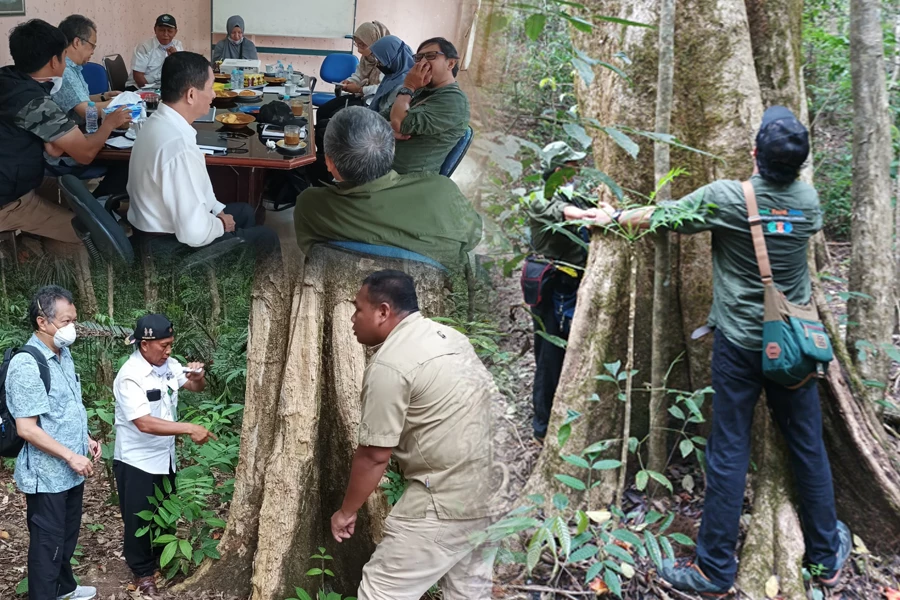SEAMEO BIOTROP, in collaboration with FAO Indonesia and the Ministry of Environment and Forestry of the Republic of Indonesia (KLHK), held an online National Validation Workshop on “Strengthening Capacities for Prevention, Control and Management of Invasive Alien Species (SMIAS) in Indonesia on 4 March 2022. The SMIAS Project is crucial to saving biodiversity in Indonesia. The National Validation Workshop on the SMIAS Project was aimed to strengthen the commitments of multi-stakeholders in finding the best solutions in overcoming the risks and impacts arising from the occurrences of the Invasive Alien Species (IAS) in Indonesia.
In his remarks, Dr Ageng Setiawan Herianto, FAO Representative Indonesia stated that the established SMIAS Project Document emphasized the essence of strong inter-institutional collaboration in managing IAS, including the involvement of indigenous communities. He further stated the importance of establishing clear programs in order to obtain co-financing support from national and international institutions.
The Director of Conservation of Species and Genetics Biodiversity, Ms. Indra Exploitasia, MSi, shared several important points to evaluate the SMIAS Project Document based on prevention, control and management of IAS in Indonesia. She also emphasized the need to narrow down the regulations gap by synergizing the existing regulations and policies in Indonesia, especially in preventing, controlling and managing IAS in Indonesia. Ms. Indra Exploitasia underlined three crucial aspects in narrowing down the regulations gap:
- Increasing the synergy among regulations to reach a solid starting point in controlling and managing IAS in Indonesia.
- Focusing the SMIAS Project on the Invasive Alien Plant Species without neglecting the control and management of Invasive Alien Animal Species.
- Seeking the innovative benefit of IAS (plant and animal) for communities.
Dr Arne Witt, the Team Leader of the SMIAS Project presented his progress report on the establishment of SMIAS Project Document. He shared that the SMIAS Project consists of several components, such as policies, capacity building, gender issues and indigenous people. He further explained that IAS is a serious threat to biodiversity, especially for a mega-biodiversity country like Indonesia. Several constraints are faced by many countries worldwide, including Indonesia. Therefore, it is crucial to increase the inter-institutional and inter-governmental collaboration in controlling and managing IAS in Indonesia. Fund insufficiency and lack of capable human resources are also serious obstacles.
Dr Arne stated that the most important aspect of the SMIAS Project is to save biodiversity and the economy in Indonesia. Therefore, Dr Arne shared the three components of SMIAS Project:
- Strengthening the policy framework, institution and funding for managing IAS in Indonesia.
- Demonstrating IAS management in the two National Parks in Indonesia: the Bromo Tengger Semeru National Park (Java Island) and the Bantimurung-Bulusaraung National Park (Sulawesi Island).
- Increasing awareness of indigenous communities surrounding the two National Parks by means of Adaptive Management.
The output of this workshop is focused on formulating several inter-institutional and inter-governmental co-financing schemes and collaboration among stakeholders. (sis).
 Wednesday, 09 March 2022 on 9:58am
Wednesday, 09 March 2022 on 9:58am
